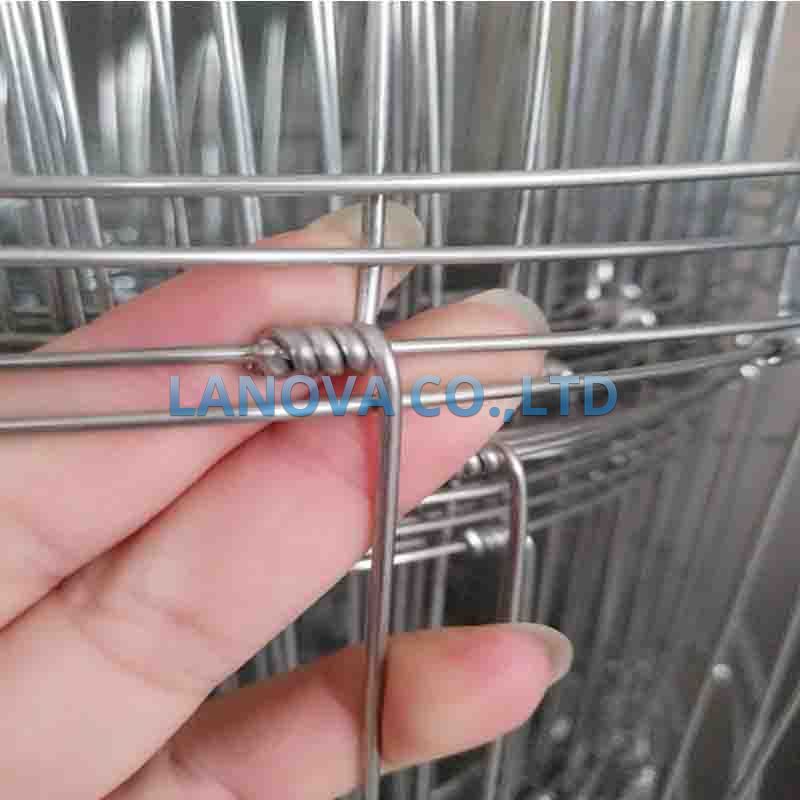- Automobiles & Motorcycles
- Beauty & Personal Care
- Business Services
- Chemicals
- Construction & Real Estate
- Consumer Electronics
- Electrical Equipment & Supplies
- Electronic Components & Supplies
- Energy
- Environment
- Excess Inventory
- Fashion Accessories
- Food & Beverage
- Furniture
- Gifts & Crafts
- Hardware
- Health & Medical
- Home & Garden
- Home Appliances
- Lights & Lighting
- Luggage, Bags & Cases
- Machinery
- Measurement & Analysis Instruments
- Mechanical Parts & Fabrication Services
- Minerals & Metallurgy
- Office & School Supplies
- Packaging & Printing
- Rubber & Plastics
- Security & Protection
- Service Equipment
- Shoes & Accessories
- Sports & Entertainment
- Telecommunications
- Textiles & Leather Products
- Timepieces, Jewelry, Eyewear
- Tools
- Toys & Hobbies
- Transportation
Exploring the Versatility and Benefits of Hinge Joint Fences
In the realm of agricultural and rural land management, the importance of sturdy and reliable fencing cannot be overstated. A hinge joint fence, also known as a hinge knot fence, has emerged as a popular choice for various applications, from containing livestock to securing agricultural boundaries. This article delves into the characteristics, benefits, and applications of hinge joint fences, shedding light on their significance in modern farming and land management.
Understanding Hinge Joint Fences
A hinge joint fence is a type of woven wire fence designed to provide flexibility, durability, and security. The name "hinge joint" refers to the unique knot design used in the construction of the fence. This knotting technique involves wrapping horizontal wires around vertical wires, creating a flexible yet strong connection. The hinge joint design allows the fence to absorb impacts and pressure without breaking or collapsing, making it an ideal choice for containing livestock.
Benefits of Hinge Joint Fences
Versatility: Hinge joint fences are highly versatile and can be used for a wide range of applications. They are commonly used to enclose pastures, contain livestock such as cattle, sheep, and horses, and delineate agricultural boundaries. Their adaptability makes them suitable for various terrains and landscapes.
Durability: The hinge joint design contributes to the fence's durability. The flexibility of the knot absorbs impacts from animals or external forces, preventing the fence from buckling or breaking. This durability ensures that the fence remains effective and intact even in challenging weather conditions.

Security: high-quality hinge joint fencing offer excellent security for livestock and property. The robust construction and tight mesh prevent animals from pushing through or squeezing between the wires, reducing the risk of escapes or intrusions. This security factor is essential for maintaining the safety of both livestock and neighboring properties.
Cost-Effective: These fences are often considered cost-effective solutions for agricultural fencing. Their longevity and resistance to wear and tear contribute to lower maintenance costs over time. Additionally, their adaptability to different terrains can reduce the need for extensive land preparation.
Easy Installation: Hinge joint fences are relatively easy to install, making them suitable for both large-scale agricultural operations and smaller land management projects. This ease of installation saves time and labor, allowing farmers and landowners to focus on other important tasks.
Minimal Maintenance: Once properly installed, hinge joint fences require minimal maintenance. Their durable design and strong connections reduce the need for frequent repairs or adjustments. This low-maintenance aspect is particularly beneficial in remote or expansive areas.
Aesthetic Appeal: Despite their functional nature, hinge joint fences can also enhance the aesthetic appeal of rural landscapes. The woven wire pattern blends well with natural surroundings, contributing to a harmonious visual appearance while fulfilling practical requirements.
Applications of Hinge Joint Fences
Hinge joint fences find applications in various contexts:
Livestock Enclosure: These fences are commonly used to create secure enclosures for livestock, preventing them from wandering onto neighboring properties or roads.
Pasture Division: Farmers use hinge joint fences to divide pastures, allowing for rotational grazing and efficient land management.
Wildlife Management: Hinge joint fences can be used for wildlife management, helping to keep wildlife away from cultivated fields and sensitive areas.
Property Boundaries: They are employed to establish clear property boundaries and deter unauthorized access.
Conclusion
In the world of agriculture and land management, hinge joint fences have emerged as a versatile and reliable choice. With their unique hinge joint design, these fences offer a blend of flexibility, durability, and security, making them well-suited for containing livestock, delineating boundaries, and maintaining the aesthetics of rural landscapes. As farmers and landowners seek effective and economical fencing solutions, hinge joint fences continue to play a pivotal role in ensuring the safety, security, and efficient management of agricultural land.
If you are interested in sending in a Guest Blogger Submission,welcome to write for us!




Comments
0